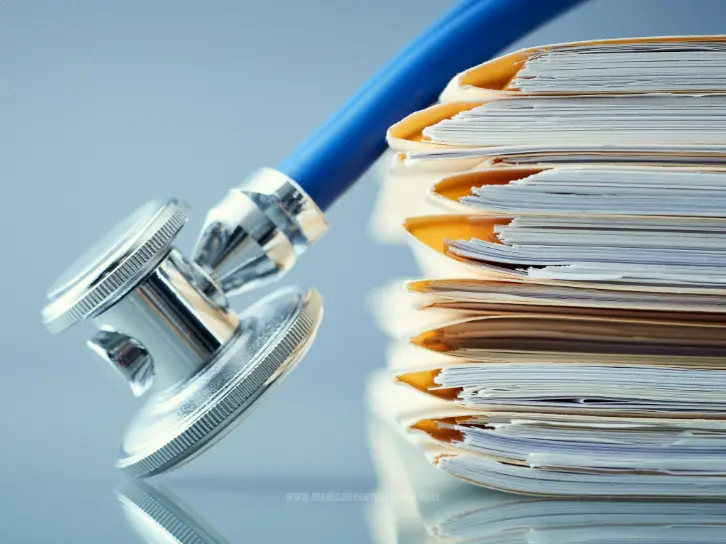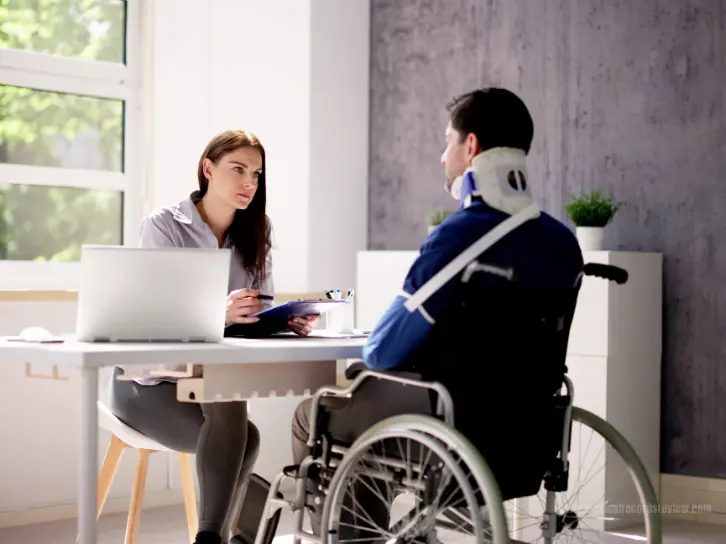For legal purposes, it is important to have accurate medical and clinical records, as these may form the basis of significant evidence influencing the outcome of claims. This is especially true in cases involving personal injury, medical negligence, and workers’ compensation where these types of records are required to be precise.
They create a complete picture of a person’s medical history which is critical in apportioning liability and damages. Time spent on careful documentation increases the possibilities of ‘winning’ such cases.
He who appreciates the impact of accurate medical records and the need for medical record reviews and how they accentuate the claims of any legal professional in any complex healthcare-related case is terms as the winner.
Understanding the Role of Medical Records in Legal Cases
Medical records are a primary source of proof in different cases. They provide a description that is necessary for proving guilt and assessing the amount to be compensated. These records have a lot of information such as:
- Diagnoses: Medical diagnoses performed by medical practitioners.
- Treatments: Medical records documenting action taken by or physician(s).
- Medications: Instructions on the medicines taken and their strength.
- Evaluations: Medical opinion and judgment by practitioners.
This is a source of information used by attorneys on the case in a matter of conclusions to findings and deadlines, which is considered the impartial recitation of patients.
The Role of Clean Medical Records in the Different Types of Claims
Accurate medical records are one of the factors that can influence the success of personal injury claims. It corroborates treatment records and provides detailed accounts of processes undertaken and their impact on assessing the value of the injuries. Such clarity guarantees that appropriate amounts are paid upon the equivalent injuries sustained by the claimants.
In claims involving medical negligence also, original and complete medical records matter. They help in reconstructing events that unfolded and remedies given hence aiding in determining whether the medical attention is optimal. Documented records serve to prove either the success or failure of a given treatment and this has a bearing on the outcome of the case.
Medical Records Review in Establishing Causation and Damages
Attorneys pursuing claims on injuries suffered in an accident must satisfy the need for reviewing medical records to prove causation as well as damages. Such records play a major role in determining causal relations and are tested about the claimant’s condition after the incident in question. This process includes
1. Establishing Causation
Medical records can also show the degree of injury or new injuries sustained in an accident. Such documents are important as they help link the defendant’s actions to the compensation enjoined by the claimant’s ill health.
2. Evaluation of Damages
Attorneys can review treatment histories and patient outcomes by scrutinizing certain documents such as clinical notes, patients’ charts, and other medical records. This data assists in evaluating how the injury has financially affected the injured and persuades the lawyer to demand just payment for the impact.
If claims are adequately justified with facts, then such facts will be used in court by attorneys, and it shall lead to better verdicts.
How Accurate Medical Histories May Shape Insurance Coverage: Insurer Scopes
Clients of insurance policies require accurate medical histories to assess risk and manage the pricing strategies of the insured. These facts contain very important information that influences insurance underwriting and enables the tailoring of policy features. Errors in medical histories can lead to coverage denials and even adverse terms of the insured in which benefits to be provided to the claimant can be affected.
It is key to correct any medical errors because the medical history directly affects the ability of the insurer to price and appropriately the potential exposure of the insured. Such precision ensures that correct premiums are levied which will lessen the chances of disputes as to the legitimacy of the claims.
Why There Is a Need for Documentation During Legal Proceedings in Real Time
Recording the patient’s condition as they go through treatment in such a way that is accurate at that moment proves necessary if at all, any legal action is to be pursued later. This visit of impartial evidence is valuable in limiting the susceptibility of information brought by third parties to even better-contained admissible evidence before the third-party court.
Since patient information is taken during medical treatment, such information can be used as evidence to bolster the reliability of such that revolve around clinical values.
1. Improves Cross-examinations:
These documents are lessened or are of importance because always attorneys would want to use the information documented to cross-examine and deny too many facts or extend such attempts to prove witnesses.
2. Assists in Legal Strategies:
The task of systematically noting all relevant aspects of the illness at hand provides attorneys with a factual substance on which they can base their courtroom efforts without having any doubts.
The documentation done in this way serves to add strength to the arguments being made to prove or disprove a point before the court of law and, therefore, influences the outcome of the cases brought before the court of law.
The Conclusion
Attorneys should try to collect correct medical records at every stage of the case since their clients’ success heavily relies on it. The significance of proper documentation in payment processing cannot be downplayed as it assists in preparing legal arguments through the provision of facts that determine the outcome of the claims.
Modern practices such as instituting proper record management systems should be embraced by attorneys for effective indexing, storage, and retrieval of medical files. This tactical approach not only helps improve legal tactics but also makes sure that the optimum use of all associated knowledge is made to support the claims for positive persuasion.
Frequently Asked Questions
How do insurance companies use the accuracy of medical histories?
Medical histories are used to evaluate the risk that the person taking out the insurance poses to the insurance company as well as the amount of potential net return that is collected in the form of premiums. Inaccuracies n these records may make the claimants face adverse policy conditions like some exclusions to coverage which accentuates the need for accuracy in all records.
Why is the thorough review of medical records essential in proving causation?
Accident-related injuries require that a medical record review be carried out in a detailed manner as it assists in proving the causation part. It aids in revealing ways in which certain events worsened existing conditions and supports the creation of a timeline as to when the patient was treated and when recuperation took place.
What types of claims are affected by accurate medical documentation?
Accurate medical documents can influence different categories of claims, especially these categories – personal injuries, medical negligence, and workman’s compensation. Concerning each one of them, it is a requirement to have proper medical histories that prove that the treatment was done and that the injuries were there of particular worth.
Ensure precision in every case, trust MRR Health Tech for accurate, HIPAA-compliant medical records review that strengthens your legal strategy!



